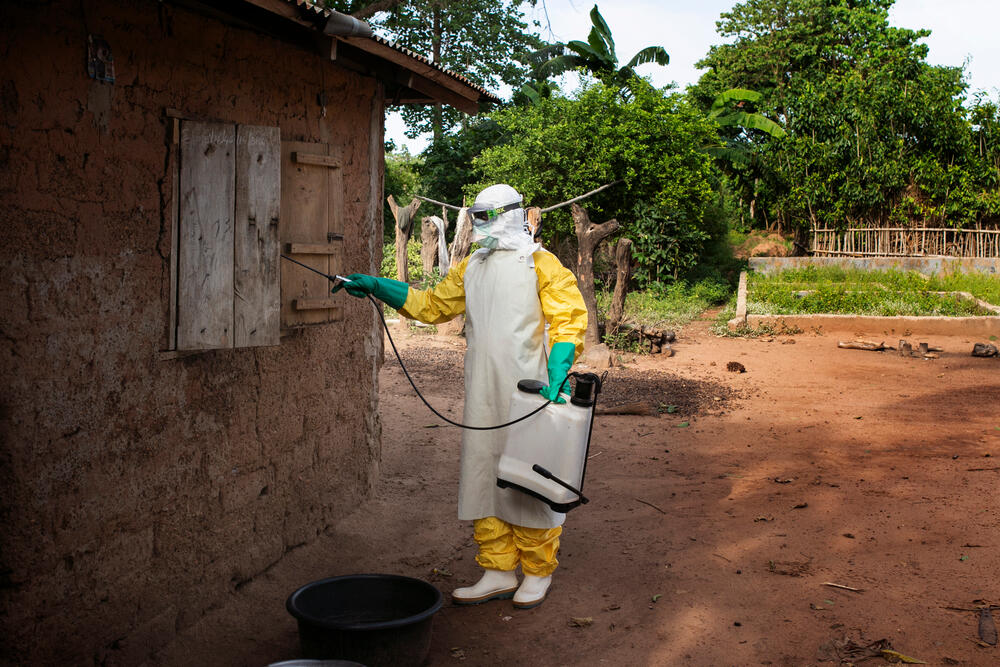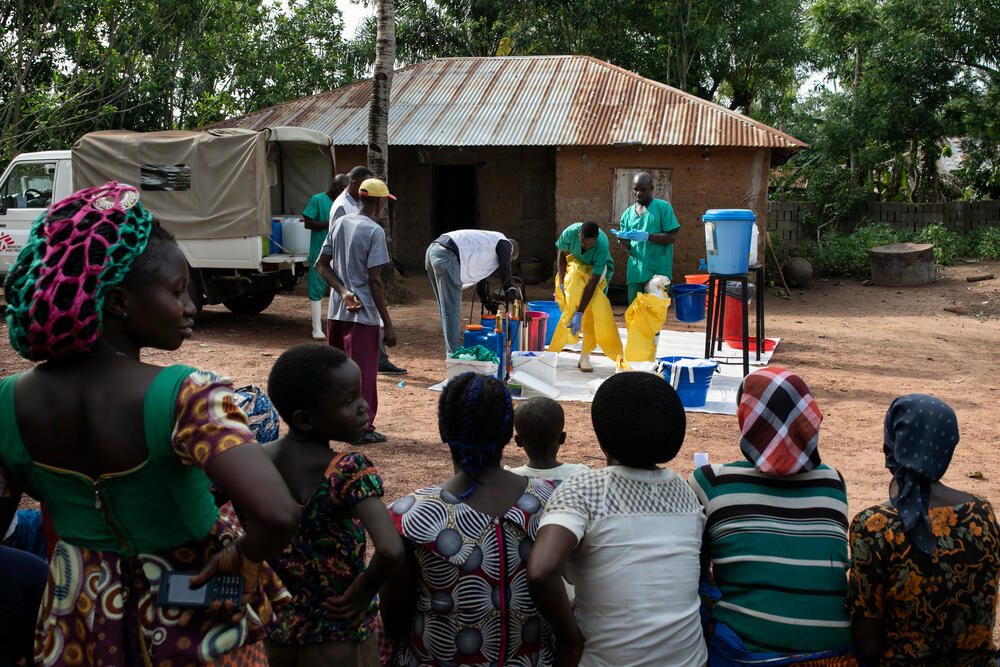Meet the team supporting families affected by Lassa Fever in Nigeria
In Ebonyi State, MSF health promotion teams are raising awareness of Lassa fever, a viral haemorrhagic fever which, untreated, can be fatal. But the work doesn't stop there, as Catherine Mezie explains...
“Catherine?”
I looked at the young woman who had just stopped me at the shopping centre. I didn’t recognise her face at all. Seeing my confusion she smiled and said, “Lassa Fever!”
Suddenly I knew exactly who she was, and I was very happy to see her.
Lassa fever in Ebonyi
I’m part of the health promotion team at MSF’s Lassa fever project in Ebonyi State, Nigeria. Lassa is a viral haemorrhagic fever that’s endemic in this area. In 2018, there was a large-scale outbreak which prompted MSF to set up the project.
The virus can be transmitted from rats to humans, or between people. But the severe symptoms are frightening, and it’s commonly mistaken to be something supernatural. People sometimes think it’s a punishment for wrong-doing, or a curse.
MSF now runs the Lassa fever treatment centre at the local hospital. But as a health promotion team, we’ve found that people still don’t have accurate information about the disease, and there are a lot of dangerous myths about it.
If there are signs that people are being stigmatised then we can go into communities to tackle it
Decontamination
The first time I’d met the woman was when we arrived at their house to do the decontamination.
Her husband had been admitted to the Lassa fever viral unit at the hospital. He was in a really critical condition. Normally a friend or relative is allowed to stay with patients as a care-giver, but this woman needed to care for their two-month old baby, so she wasn't able to.
Everything was just chaotic for her. She was scared that her husband would not survive and felt it was her fault for not insisting they go directly to the hospital instead of trying various local drug patents first. When we arrived at the house she was crying, the baby was crying, everybody was crying.
Stigma
My first job was to reassure her. I know from experience that someone who is that distressed can’t absorb or give a lot of information. She was really scared that if her neighbours found out that her husband had Lassa fever then everybody would shun her completely.
Stigma is a real problem with Lassa fever. We’ve known people to lose their jobs, for their children to be sent away from school, and for families to be expelled from their communities until they can prove they are not infectious. The loss of income and the psychological impact can be devastating.
But while we talked, the environmental health team were putting on their full personal protective equipment – the masks, goggles, suits, boots, and gloves. Decontamination means spraying the whole house with 0.05% chlorine, as well as clothes and everything else, to reduce the risk of other family members getting the disease. We try to be discrete, but it is not a very discrete process.
Let's talk about it
Neighbours started to ask questions. We don’t talk about our patients, but we were able to discuss the facts of the disease, people’s fears, and how it can be prevented. The people told us that there was a bit of a rat infestation, and together started coming up with ideas for how to eradicate them.
As we talked more, the conversation shifted. It wasn’t just about the rat problem. People also wanted to offer support to the woman, maybe somebody would look after the baby so she could go to the hospital. By the time we had finished the decontamination, the risk of infection was much lower; people had accurate information and some practical ideas for what they could do; and the woman herself seemed much calmer.
Aftercare and outreach
As health promoters, one part of our job is to go into the community and give people the information they need to recognise the symptoms, seek treatment and take preventative measures. This can mean running sessions at schools, churches or marketplaces.
But we also support families affected by the disease. Untreated, Lassa fever can be life-threatening, and there is a lot of anxiety and fear. We brief families at the hospital, help while their houses are decontaminated, and follow up with patients who have recovered. If there are signs that people are being stigmatised then we can go into communities to tackle it.
One year on…
In the shopping centre, the woman thanked me again for everything we did. After the decontamination, I’d spoken to her several times in the difficult days while her husband was still in hospital. But that was a year ago. Now he was fully recovered, and she officially introduced me to him. She said that they’re being careful at home to avoid a repeat hospital visit, and that her daughter is now a toddler and getting into lots of mischief.
As we said goodbye, I felt really good about the whole encounter. We know there is still more work to do in raising awareness in the community, but this couple both looked healthy and happy and it made feel me that we were making a real difference in the people’s lives.
I smiled through the rest of my shopping and may have spent more than intended…
MSF in Nigeria
Nigeria With over 190 million inhabitants, Nigeria is the most populous country in Africa.
Nigeria also has one of the fastest-growing economies, which is based primarily on the petroleum industry. However, a decade-long conflict has devastated the northeast of the country. Thousands have been killed and nearly two million people have been uprooted since fighting broke out between the military and non-state armed groups.
Médecins Sans Frontières/Doctors Without Borders (MSF) has been responding to disease outbreaks and emergency health needs in Nigeria for many years, focusing on maternal and paediatric healthcare throughout the country and scaling up our activities in the northeast as vast numbers of people caught up in the conflict depend on aid to survive.


